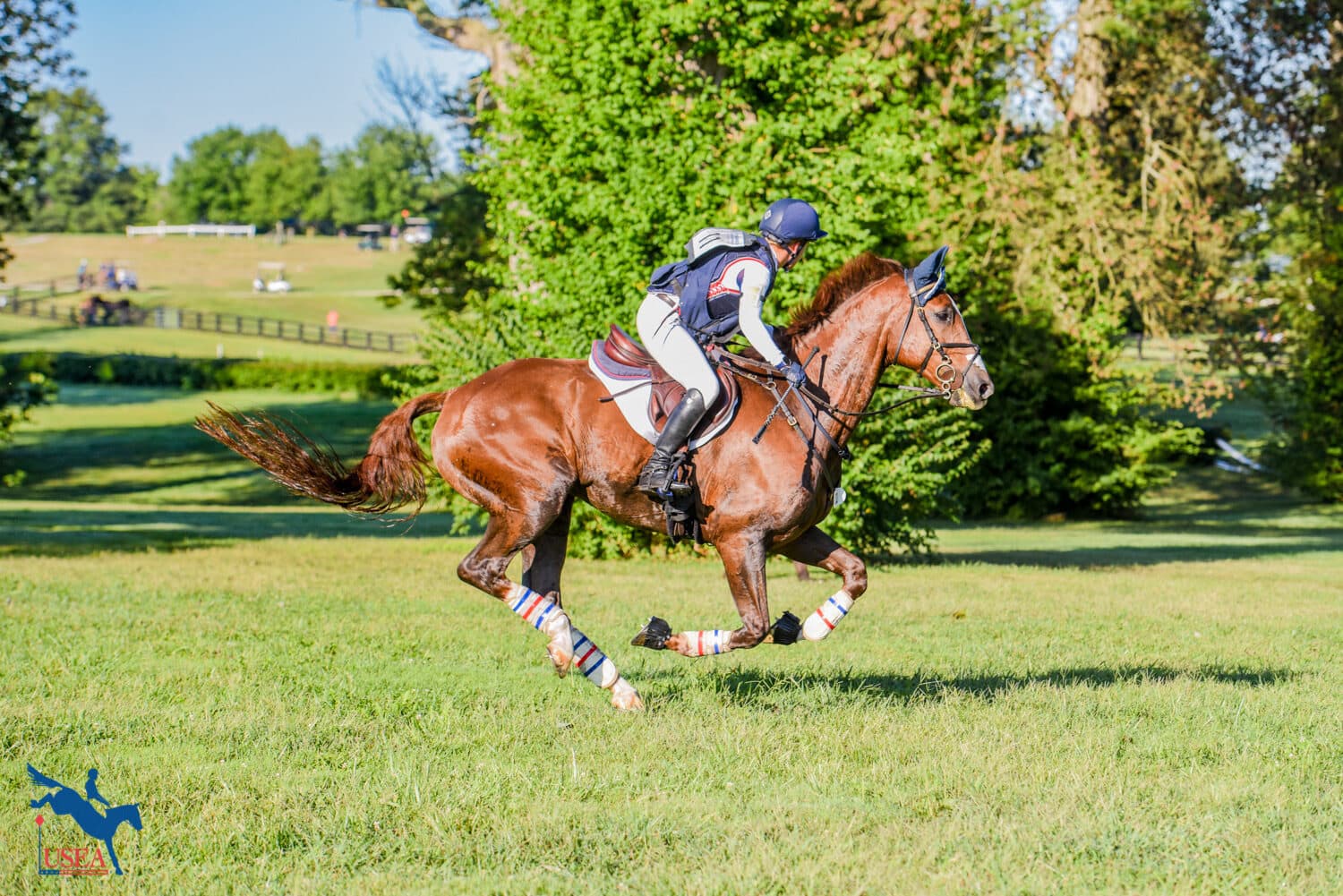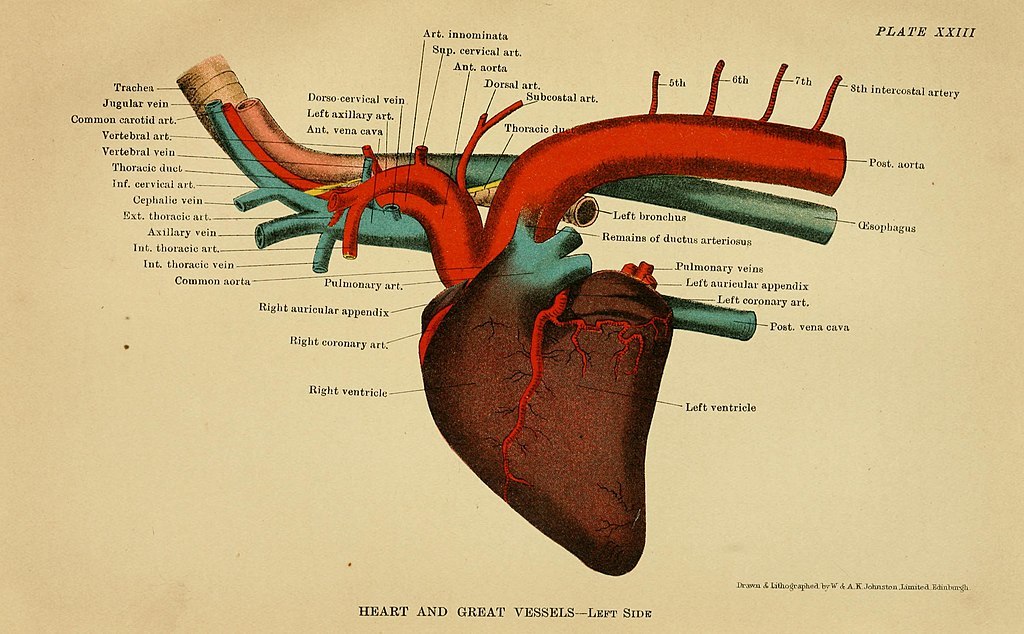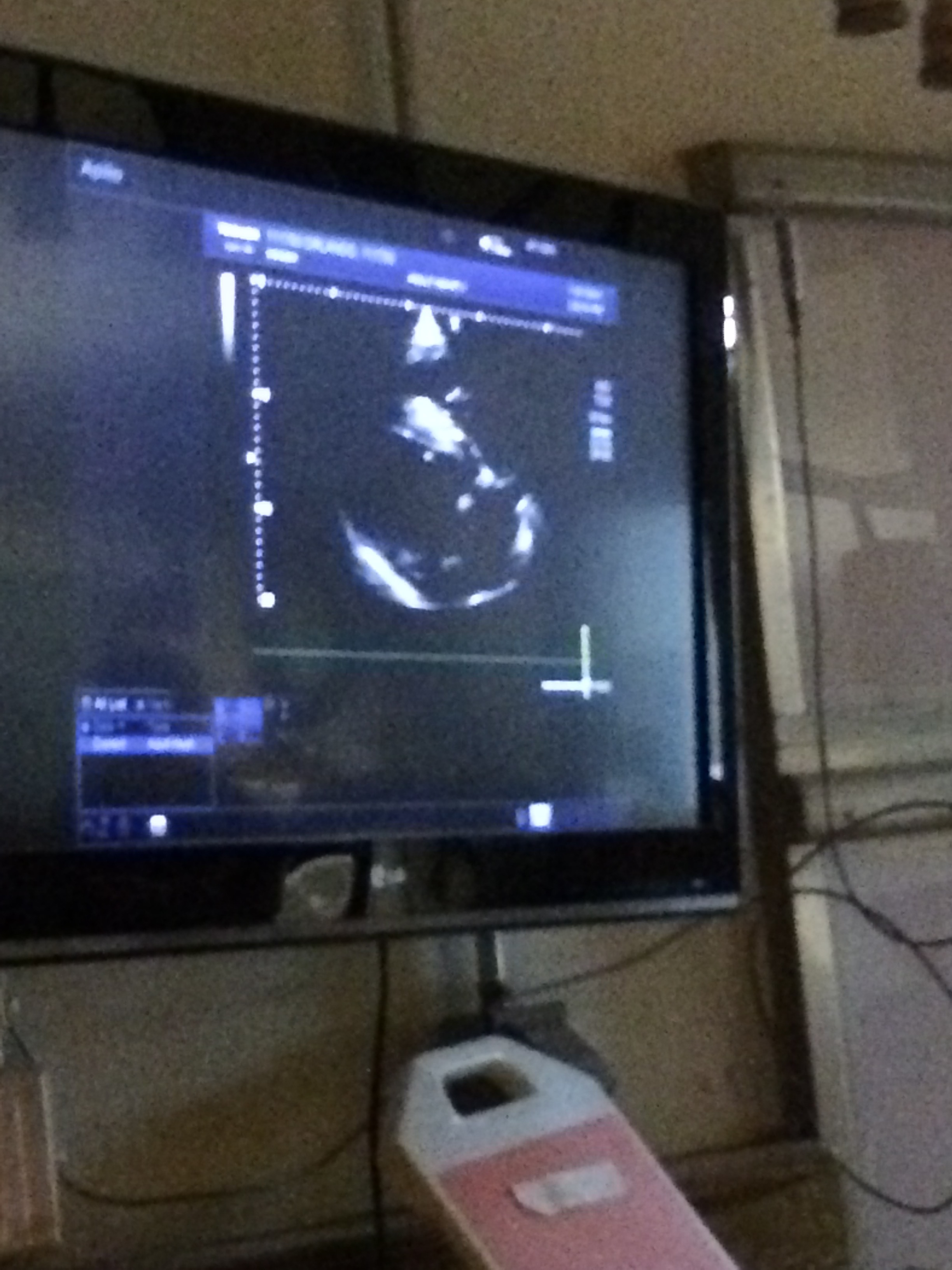The Heart of the Matter: Cardiovascular Fitness in Horses

The health and safety of our equine athletes is always our first priority, and that means making sure they are physically fit and healthy enough to compete. Frequently, focus is placed on the soundness in a horse’s legs and feet, but what about his heart?
Dr. Krista Estell, Clinical Assistant Professor of Equine Medicine at Virginia Tech's Marion DuPont Scott Equine Medical Center in Leesburg, Virginia, explained the importance of a horse’s cardiovascular fitness. “Horses are athletes, and they are athletes that not only have to pump blood to be able to exercise efficiently but they’re also carrying a person on their back so it’s doubly important that their cardiovascular system is working correctly.”
The cardiovascular system consists of the heart, lungs, and arteries and veins throughout the body that deliver oxygen to the muscles by pumping blood to and from the heart. “The primary job of the heart is to pump blood through the lungs where it picks up oxygen,” Estell explained. “Then the blood is pumped to the muscles where the oxygen is transmitted into the muscles and the muscles use the oxygen for contraction. Blood comes back to the heart via the veins and the cycle continues.”

A horse’s fitness routine plays a large role in their cardiovascular fitness. “I think we do horses an injustice when we take them out of the field and expect them to perform at a high level after not being worked for a long time,” Estell said. “Ideally, horses are worked 3 to 5 days a week and typically only asked to have peak exercise one or two of those days depending on the level of training that they’re in.”
“I think that’s where the sports medicine veterinarians really come into play – they can help a horse that’s been stall kept because of an injury or turned out in a field because of the off season,” she continued. “They can design a plan to slowly bring up the horse’s level of fitness and keep everyone safe, not only from a musculoskeletal standpoint so that they don’t injure any of their soft tissue but also from a cardiovascular fitness standpoint.”
The best defense against cardiovascular issues in horses is early detection. “The veterinarian in the field at home is our eyes and ears,” Estell said. “I think that sometimes clients will try and cut corners, like ‘Oh, you’re just out here to look at a lameness, do you have to listen to my horse’s heart?’ Well, yeah, because the heart is what pumps the legs. The legs don’t work if the heart’s not working. I think that’s an important thing to remember.”
The most common cardiovascular issue veterinarians encounter is a heart murmur. While many heart murmurs are benign and require no additional treatment beyond regular monitoring, other, more serious heart murmurs may need to be explored further. “A murmur occurs when the valve is no longer working as a one-way door – blood is moving back and forth across the valve – and that means the heart has to work harder to pump that blood as effectively,” Estell explained. “Sometimes those heart murmurs are completely benign and non-progressive, but over time in some horses that results in a volume overload to one part of the heart that can make the heart get bigger. Therefore, the murmur and the regurgitation can get progressively worse. That’s important, because as these murmurs progress and the heart gets larger they can become prone to certain types of electrical abnormalities and arrythmias that can be potentially dangerous for both horse and rider.”
The grading scale used most frequently is a 0-5 grading scale, where 0 is no murmur at all; grade 1 is a murmur that is difficult to hear; grade 2 is audible but not as loud as the other heart sounds; grade 3 is quite loud and heard right away; grade 4 is when you can feel a ‘thrill’ – turbulent blood flow inside the heart chamber caused by regurgitation through the valve; and grade 5 is when you can hear the thrill with the stethoscope raised up above the chest.
“Though murmurs happen commonly, it’s important to have your veterinarian listen to the heart at every vaccination appointment and wellness check and then, if any new murmurs arise or the murmur is particularly loud, that’s when referral to a cardiologist or a veterinarian that has experience in cardiology is useful.”
Estell detailed that cardiology workups typically begin with a full physical exam and then focus on the cardiovascular system “We’re going to listen to the heart from both sides of the chest, we’re palpating the peripheral pulses, we’re often watching the horse go on the lunge line and seeing what their level of exercise tolerance is,” she said. “After that then we’ll do an echocardiogram, or an ultrasound of the heart, and that’s a comprehensive ultrasound where we look at the heart structure and size in addition to the way the valves are functioning. We’ll also do an electrocardiogram (ECG) where we look at the electrical activity of the heart to make sure that the heart is functioning appropriately. We’ll do that at rest, and in some cases we’ll do exercise ECG whether the horse is on the lunge line or being ridden.”

“If we hear a murmur or valve regurgitation that has changed the size of the heart then we move on to the exercise ECG and we ask them to perform at or just a touch above the level that they’re intended to because some of these horses will have dangerous arrythmias that will only occur when they’re under maximum exercise and we want to know if those are going to happen,” she continued. “If they do have those dangerous arrythmias then they often either need to be retired or they need to decrease their level of activity to a level that’s safe for horse and rider.”
“It’s important to note that the loudness of the murmur does not always correlate with the severity of the valve regurgitation, so they can have quite a loud murmur and the valve regurgitation is not severe,” Estell stated. “That’s where the cardiac ultrasound is so important. Typically, a grade three and above will necessitate a referral. Horses that are upper level eventers or fox hunters, if they have a new grade two murmur, or a new murmur of any kind, that can be grounds for a referral.”
For riders that are looking to monitor their horse’s cardiovascular fitness, an equine heart rate monitor can be a great tool. “Equine heart rate monitors can be really useful to see how good your conditioning is, especially if you’re looking to up your horse’s performance level,” said Estell. “A horse’s heart, when they’re being exercised, shouldn’t really go much above 200 beats per minute and it should return to a normal level fairly quickly.”
Kate Motley, co-founder of Hylofit, explained the benefits of the Hylofit heart rate system. “It’s a heart rate monitor for horse and rider,” she said. “It allows athletes to use heart rate to help them train and inform decisions in the saddle . . . heart rate is a great indicator of workload, but also stress and pain. The more you understand your horse’s resting heart rate and heart rate at different levels of training, the more you can understand if the heart rate results you’re seeing are a result of the work you’re doing or the result of something else. A lot of people think that heart rate is great if you’re an athlete with Olympic aspirations, but the reality is that this kind of information is so important for everybody.”
Interested in doing more to support cardiopulmonary health in event horses? Consider making a donation at www.useafoundation.org/donate to support the work of the USEA's Equine Cardiovascular and Pulmonary Research.
About Krista Estell, DVM, Diplomate ACVIM
Dr. Krista Estell graduated magna cum laude with her Bachelor of Science in biology from Frostburg State University in Maryland before earning her Doctor of Veterinary Medicine at the Virginia-Maryland College of Veterinary Medicine in 2009. She then completed an internship at the Equine Medical Center of Ocala in Florida and a residency in large animal internal medicine at University of California at Davis. Before joining the EMC as clinical assistant professor of equine medicine, Dr. Estell worked as an equine internal medicine clinical faculty member at University of California at Davis. She served as primary investigator and collaborator in multiple research projects in addition to a high clinical commitment and worked closely with the small animal oncology department to provide cutting-edge chemotherapy and radiation therapy treatments to equine oncology cases. She earned her Diplomate status with the American College of Veterinary Internal Medicine in 2014. Dr. Estell has clinical interests in emerging therapies in oncology, neurologic disease, clinically applicable research, and collaboration between disciplines to deliver the best patient care.















